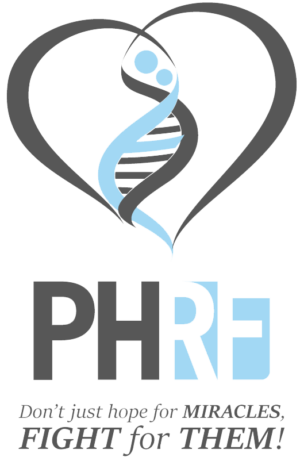ST. MARYS – Meet Mitchell Hainer, with the bright blue eyes and wide smile. He’s not your average eight-year-old.
He is one of approximately 250 people worldwide diagnosed with Pitt-Hopkins Syndrome. The condition is so rare that when MPP Randy Pettapiece told the Legislature about the first annual Pitt-Hopkins Awareness Day, by coincidence on Mitchell’s birthday, it was one of the first times many would have heard of it.
Pitt-Hopkins is a genetic disorder affecting the 18th chromosome. It’s characterized by developmental delays, no speech or limited speech, low muscle tone, unusual breathing patterns and holding one’s breath while awake. In terms of behaviour, people with Pitt-Hopkins tend to be cheerful and happy.
“There are more kids like him but only 50% of parents find out the answer,” said his mom Lynn Hainer.
She recalled a visit to the United States where a woman was staring at Mitchell and they weren’t sure why. Eventually, she came over and said her son walks the same way as Mitchell.
“Her son was 20 and there wasn’t the technology back then. We gave her the information,” said Rick Hainer, Mitchell’s dad.
After seeing Mitchell, the woman was interested in getting more genetic testing for her son.
Despite advances in medicine the route to a diagnosis for Mitchell wasn’t a straight one.
Like his older sister Johanna, 10, he was born in Toronto. Unlike his sister, he didn’t seem to be meeting his milestones. On his first birthday, a pediatrician at Toronto’s Sick Kids Hospital acknowledged Mitchell had some sort of developmental issue. After dealing with about 50 agencies the family decided to make a change.
Lynn grew up in St. Marys and knew the small town atmosphere would benefit Mitchell more than a larger city.
“We were worried about what would happen to Mitchell as an unidentified person on the street. If Mitchell was found wandering the street (in St. Marys) someone would bring him home. It’s a very caring community,” she said.
While the medical community in Toronto is highly specialized, that doesn’t take away from the quality of care Mitchell received here, Lynn suggested.
“We have fantastic inquisitive doctors,” she said. “Dr. Kirsten Blaine was willing to redo some steps, that made all the difference in the world.”
Mitchell underwent testing and saw specialists who were equally inquisitive. It was thought perhaps he had Angelman Syndrome, another genetic disorder with some of the same characteristics.
The Hainers went to a U.S. conference for Angelman’s Syndrome but soon after they arrived they knew that wasn’t what Mitchell had. A doctor who specializes in Angelman’s took one look at him and knew right away that wasn’t the right diagnosis. It was suggested they see a British doctor who happened to be at the conference. It was she who steered them toward Pitt-Hopkins.
Mitchell was born in 2005. Testing started in 2007 and they had a diagnosis in 2010.
“It was relieving but not life changing, as I thought it might have been. It was great to have a name but it felt lonely, it’s such a rare disease,” Lynn said.
That’s where the Internet has been a source of both comfort and information.
“When you’re going through a crisis you post a lot online and you’re able to get immediate feedback. It gives you peace of mind others are living the same life as you,” she said.
There are few other resources.
Mitchell is a pupil at Little Falls Public School where the focus each year has been on inclusion. The school combined Spirit Day and Pitt-Hopkins Awareness Day this year. For the awareness portion of the day, each kid at school got a tattoo. Johanna put them in envelopes and helped put them on the smaller kids.
Mitchell is a very social guy and it’s important he make friends, Lynn said.
“A lot of kids have known Mitchell for years. His first words were please and thank you and he learned that at daycare.”
“I believe he speaks more because he is in an inclusive classroom.”
He has recently joined a Saturday bowling league with his high school “buddy.”
Supports outside of school can be trickier. Many personal support workers are used to working with seniors not energetic eight year olds.
“The parent really needs to be the advocate. It’s a big job,” Lynn said.
“The transition we worry about is into adulthood. All that support goes poof on his 18th birthday.”
Funding to make their home safe and adaptable to Mitchell can be hard to come by as well. The March of Dimes helped with extensive bathroom renovations.
The hope is he will continue to live in the house, perhaps with a roommate who could share some of the services with Mitchell. Lynn said she and Rick could move into the basement so they would be nearby.
“I would love to see us having a small business Mitchell could have a major part in out in the community and giving back — it would be with supports,” Lynn said.
Mitchell has come a long way in five years and his parents don’t know what the future holds. They just want him cared for with friends and access to services.
For his part Mitchell had this to say — “Peace.”
laura.cudworth@sunmedia.ca






